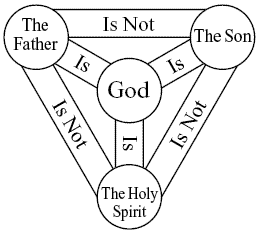Why does the Bible say that God hated Esau and we are to hate our own family members?
The two verses your question refers to are Romans 9:13 and Luke 14:26.
In these verses God certainly says that He hated Esau and that we are to hate our father, mother, wife, children, brothers and sisters. How can a loving God hate or command us to hate when He is supposed to be a God of love?
There are many statements made in the Word of God that appear to be absolute. For example, speaking of the Sabbath day, Exodus 20:10 says, that the Jews were not to “do any work therein.” But Jesus taught that works of piety and righteousness could be done. Another statement that appears to be absolute is Matthew 7.1 (perhaps one of the most well-known verses in the Bible), “Judge not, that ye be not judged.” But Christ also clearly commanded His disciples to “judge righteous judgment” (John 7:24) and to “…discern both good and evil.” (Hebrews 5:14) You can’t ‘discern’ without making a judgment call.
How do we resolve these apparent conflicts? The Word of God says that we do it by comparing Scripture with Scripture. That is, by comparing the Bible to (and only to) the rest of the Bible (1 Corinthians 2:13; 2 Peter 1:20).
In the case of Luke 14:26, Is a child really supposed to hate his parents? Read 1 Timothy 5:4,16. Is a man really supposed to hate his wife? That’s not what Ephesians 5:25-28 says. Is a parent really supposed to hate his own children? (2 Corinthians 12:14)
So we can draw the conclusion that, in the Word of God, all terms which define emotion or affection are comparative. What God is saying is that we are not to put our family ahead of God. A missionary leaves his mom and dad for the foreign field, but even worse, takes the grandkids with him! To most people that doesn’t make sense. And isn’t even rational. That’s what God said would happen. Some parents would even play the ‘love’ card, “you love your church more than you do me!” That’s what God meant. Without even trying, the choices a Christian makes in life to attend church, tithe, stop partying, etc. will be misunderstood by many (even in the church). The Greek word translated “hate” in Romans 9:13 literally means to “love less.” Christ personally illustrates this principle in Matthew 12:47-50.
Jesus certainly did not despise or turn His back on His mother (thoughts that the word “hate” bring to mind today). In fact, He was concerned for her care even on the cross (John 19:26-27). But Jesus’ desire to complete His Father’s will, often forced Him to distance Himself from His own family for the sake of obedience. The world may well consider that disrespect or even hatred, but not God. He is to be honored and nothing is to come between us and our obedience to Him – not even family.
All Rights Reserved • New Testament Baptist Church • Powered by Spirelight Web










